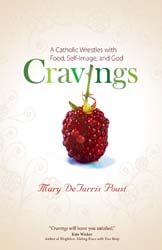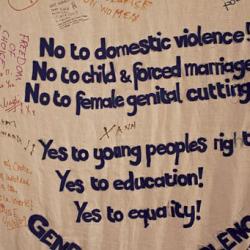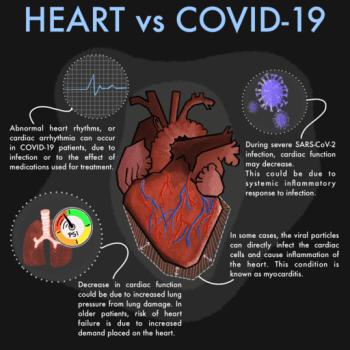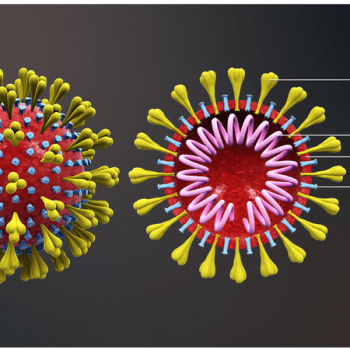To join the discussion on Cravings, or for a link to buy the book, go here.
 Cravings, by Catholic author Mary De Turris Poust, provides ideas for combining Catholic spirituality with the fight to control overeating.
Cravings, by Catholic author Mary De Turris Poust, provides ideas for combining Catholic spirituality with the fight to control overeating.
It’s a book written from the outside, so to speak. Ms Poust has never suffered from a weight problem, and, aside from a brief adolescent foray into extreme dieting and overexercise that lasted a short time and was cured by going on a family vacation, she has no personal experience with the demons that drive those of us who are truly addicted to food and use it for our drug of choice.
I’m not trying to pick at either Ms Poust or her very fine book when I say that. But it’s an important caveat to consider when reading the book. What can a woman who writes sentences like “I will actually crave broccoli when I eat too much heavy food … something that has grown out of being a vegetarian, doing yoga, jogging regularly …” have to say to me?
It turns out that if she’s a good writer who does a lot of research and has a well-developed sense of Christian spirituality, she has quite a lot to say to me.
As I said in other posts, I am one of the legions of people in this country who use food as a drug of sorts. I soothe myself with food when frustrations get to me. I also use food was a way out of boredom and as recreation. I have somehow developed the ability to mimic many of the emotions and behaviors that real drug addicts attach to their addiction to things like meth, only I use food as the drug.
It’s not a question of what I eat. The real question is, what’s eating me?
Cravings isn’t another one of those try-it-lose-it-and-regain diet programs overeaters know so well. In fact, it comes close to abjuring diet programs. This book focuses on how to replace food as the go-to drug for what ails you by turning to God. It’s full of very useful ideas and plans in this quest. One of the main foci of the book is on what the author calls “mindful eating.” Mindful eating is the fine art of paying attention to what you’re doing when you eat and not just stuffing things down without even being aware of it.
I know that for a lot of people the idea of eating a meal and not being aware of it sounds far-fetched. But I’ve done it. I do it. Part of the reason that food soothes me is that I’ve learned to turn off when I eat.
Food, or at least the act of eating, has become a sort of stress and thinking off-switch for me. That doesn’t mean that I go into a trance or become a blubbering food drunk. I engage in conversations and actually enjoy myself. Food as a drug is at least part metaphor for the simple reason that food is no drug. It is an essential and highly enjoyable part of our physical survival. It is also an integral part of our social life. We bond to people over food.
What Ms Poust suggests is that we try to resurrect this original purpose of food as a means of survival/bonding/pleasure and make the most of them. She wants us to do this by refocusing our emotional hungers that we try to satisfy with food on the One who can actually assuage them.
The practical side of this book gives what I think are sound and useful suggestions such as eat at the dining room table, enjoy regular family meals, pray before meals, and when you crave food as an answer to pain, turn to God in prayer, instead. She gives lots of specific ideas, most of them worth trying and then hanging onto.
Where the book becomes tedious, at least for me, is the over-emphasis on what I think of as arcane references. Part of this feeling is due to the fact that I read a lot of Catholic books and I’ve noticed that the women authors, in particular, seem to have a strong monastic bent. They quote the desert fathers and talk a lot about their retreats to monasteries and conversations with monks.
Now that’s all fine, but it doesn’t compute with me. In the first place, Ms Poust tries to hold the monastic way of eating, which she says is based on simple food eaten in community with prayer and mindfulness, as an example of what the rest of us should do. This might resonate with me more if I didn’t know so many overweight monks. These guys have the same problems with food that I do.
I’m not saying that simple food, eaten in community with prayer and mindfulness is not a wonderful thing. But I am saying that living life as the monks do is not attainable or attractive for most people and besides, so far as weight control goes, it doesn’t always work, not even for the monks.
So far as overeating is concerned, we’re all down here in the pits together, and the sooner we get over the idea that “our” overeating problem is some terrible curse that hits us alone, the sooner we’ll begin to grow up foodwise. I say that, not as someone who has conquered her food problems, but as someone who has been consistently conquered by them.
Cravings is a thoughtful book with a lot to offer. Its basic premise, that some of us try to feed our emotional and spiritual hungers with food, is spot on. I personally am still trying to figure out how to turn to God instead of food for these things. I’ll write more about that later.
In case you didn’t notice, I’m resurrecting the Less of Me series for this blog. In the meantime, if you are looking for a starting point on how to combine spirituality with your battle with food addiction, give Cravings a read. It has a lot of good advice in it. Despite my picky caveats, I recommend it.












